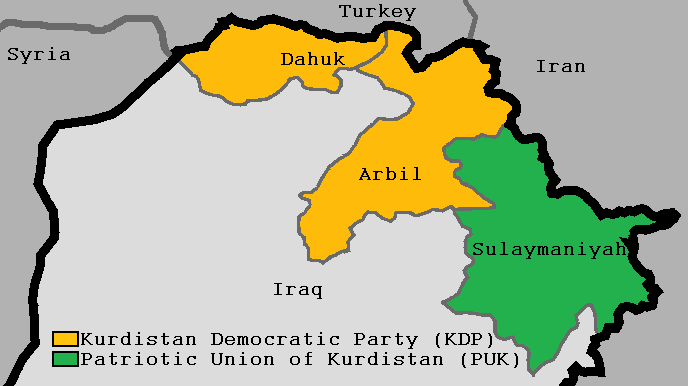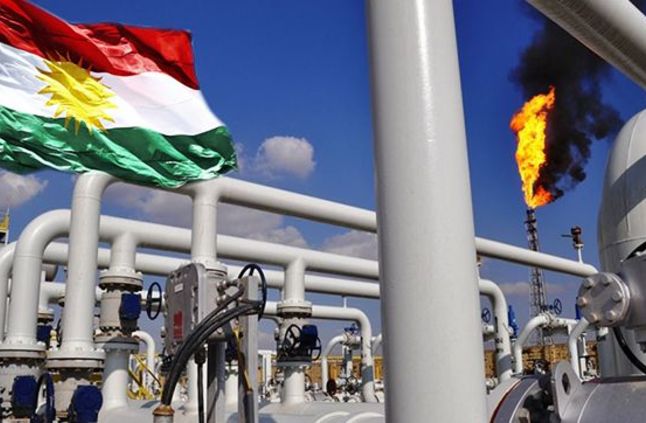Unlawful referendum attempt of Kurdistan Regional Government (KRG) and its implications
DRK Snapshot
Inevitable cooperation and red lines in the Middle East.
Unlawful referendum attempt of Kurdistan Regional Government (KRG) and its implications
Key Takeaway:
The establishment of a new state in the region threatens the national interests of Turkey, Iran, and Iraq. Therefore, the separatist policy of KRG triggered the formation of an undeclared alliance among the regional actors.
Actors
Iraq:
 After the referendum, the Iraqi central government imposed a series of sanctions including the ban on all international flights to and from the KRG controlled region as well as it took control of the contested areas including Kirkuk.
After the referendum, the Iraqi central government imposed a series of sanctions including the ban on all international flights to and from the KRG controlled region as well as it took control of the contested areas including Kirkuk.
The major implication of the unlawful attempt was the power consolidation of the central government and strengthen its authority due to the regional and international political support.
Iran:
Iran prevented the possible Kurdish rebellion by separating the PUK from KDP and increased the oil flow from Kirkuk and PUK region to her. Moreover, diminished the US and Israel influence in the region by strengthening Shia tier in the region and gaining Turkey’s support in Syria crisis.
Turkey:
 Turkey is the KRG's largest trading partner, has contracted more than half its construction business. The Habur border gate is the lifeblood of the KRG and constitutes the primary crossing gate for nearly all international trading activities. Furthermore, KRG also depends on the Kirkuk-Ceyhan pipeline to export the oil. In this sense, Turkey’s support to the central government increased the adverse effects of the sanctions on KRG.
Turkey is the KRG's largest trading partner, has contracted more than half its construction business. The Habur border gate is the lifeblood of the KRG and constitutes the primary crossing gate for nearly all international trading activities. Furthermore, KRG also depends on the Kirkuk-Ceyhan pipeline to export the oil. In this sense, Turkey’s support to the central government increased the adverse effects of the sanctions on KRG.
The developments after the referendum proved the critical role of Turkey in the region and paved the way for the establishment of a robust cooperation with Iraqi central government against separatist and extremist terrorism.
RF:
 Russia has an increasing role in the Middle East, which will increase along with its economic weight. Besides, Moscow has been efficiently filling the gap as the United States has been pulling back from Iraq. Moreover, the military and technical cooperation between the Russia and Iraq via Iran have reached a significant level.
Russia has an increasing role in the Middle East, which will increase along with its economic weight. Besides, Moscow has been efficiently filling the gap as the United States has been pulling back from Iraq. Moreover, the military and technical cooperation between the Russia and Iraq via Iran have reached a significant level.
In the beginning, Russia was against the referendum, but later Russia has signed a contract that has set for 20 years via Rosneft. This contract is including to drill and transport the Kurdish oil and natural gas, and to construct pipelines.
Russia behaved sensitively during the pre-and post-referendum since she wanted to preserve the delicate balance of relations among regional actors and parties of the conflict. However, the emerging situation serves to the interests of Russia since it curtailed the US influence in the region.
Israel:
Ties between the Israel and Kurds have been deep-rooted contrary to other regional countries. Hence, Israel is the only country that overtly supports the independence movement. There is some material explanation of this support. First, Israel imported three-quarters of its oil from Iraqi Kurdistan in 2017. Second, Israel considers Northern Iraq as a base to conduct intelligence operations on Iraq and Iran as well as to confine Iran from the West.
USA:
 The separation between Kurds (KDP and PUK) is a development threating the US interests in the region. Thus, the USA also forced the Iraq government to establish common security forces that include more Peshmergas to secure the Kirkuk.
The separation between Kurds (KDP and PUK) is a development threating the US interests in the region. Thus, the USA also forced the Iraq government to establish common security forces that include more Peshmergas to secure the Kirkuk.
The escalation of the conflict between Kurds and Arabs poses a severe risk to the US military presence in the region. The collaboration of the regional actors against the KRG undermined the US long-term interests that envisage the establishment an independent Kurdish state.
Conclusion:
The disintegration of Iraq constitutes a red-line for the regional countries since they share a common threat, which is emerging from the Kurdish separatism, directed towards their existences.
On the other hand, the USA and Israel consider the formation of a Kurdish state as a step to widen their sphere of influence in the region and weaken the internal coherence of the regional actors.
Consequently, the unlawful referendum led regional countries to cooperate against external penetrations and strengthened the negative perception of KRG, the USA, and Israel while it amplified Russian and Iranian influence in the region.
